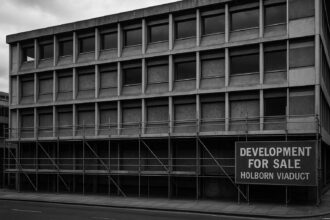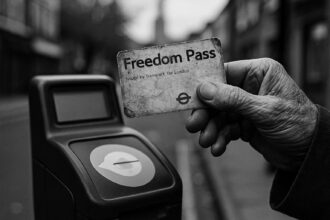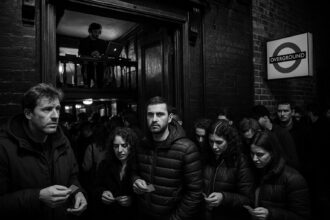Notting Hill Carnival is due to go ahead this weekend after months of funding rows and policing concerns, with a temporary package in place as organisers urge lasting, government-backed support.
Notting Hill Carnival is finally set to go ahead this weekend, with organisers hoping the relief will outstrip the anxiety that has stalked the event for more than a year. Around two million revellers are expected to join the streets for a celebration that blends music, food and Caribbean culture, but the mood is tempered by the memory of recent funding rows, public friction with the Metropolitan Police and damaging press coverage after last year’s violence. Ian Comfort, chair of Notting Hill Carnival Ltd, told the Guardian that the burden of keeping the festival alive has been heavy, and that securing a sustainable future was essential after the near-miss last month when the event was saved only by almost £1m of funding for safety and infrastructure. Comfort, who usually stays in the background, argued that the conversation around carnival must change if the festival is to endure, insisting that it should be recognised with stable government support rather than contingent noises in the media.
The Guardian’s coverage has framed Notting Hill as a case study in the tensions between culture, policing costs and sponsorship. The piece notes that last year the carnival cost more than £11m a year to police while contributing about £400m to the local economy, underscoring why sponsors and public bodies are wary of backing a high-profile event in a difficult funding climate. The report also highlighted a leaked letter from Comfort to Culture Secretary Lisa Nandy in June, warning that urgent government funding was essential to safeguard the event’s future. Comfort’s reaction to the culture secretary’s stance—“carnival wasn’t a cultural matter for her”—is presented as an illustration of the political drivers surrounding the festival, while his further remark that publishing a pre-carnival report amounted to “political posturing” has fed debate about the event’s publicity strategy and sponsorship prospects. The Guardian also touched on last year’s violence, noting the murder of Cher Maximen during a family day incident and Comfort’s own reflections on whether anything could have been done to prevent it, a reminder of the stakes for safety and community trust as the new edition approaches.
Beyond the headlines, local authorities have stepped in with targeted funding to cover safety measures while national recognition for ongoing support remains a live issue. Kensington and Chelsea Council confirmed a one-off funding increase for 2025 after a safety review identified essential crowd-management costs, with City Hall and Westminster Council alongside RBKC agreeing to bolster grants to meet the recommended safety measures. The council emphasised that this year’s funding is a temporary arrangement, positioned within broader constraints on public budgets and with an eye to longer-term recognition at the national level. The Royal Borough’s collaboration with the City Hall and Westminster reflects a granular, place-based approach to crowd safety, while underscoring the broader argument that not all festival costs can be absorbed by local authorities alone. In parallel, an official Notting Hill Carnival update framed the funding package as a necessary step to implement safety and infrastructure improvements, reiterating the event’s appeal to millions and its substantial economic footprint—even as it continues to press for a more durable, government-backed funding framework.
 Reference Map:
Reference Map:
Source: Noah Wire Services
- https://www.theguardian.com/culture/2025/aug/22/notting-hill-carnival-london-funding-policing – Please view link – unable to able to access data
- https://www.theguardian.com/culture/2025/aug/22/notting-hill-carnival-london-funding-policing – Notting Hill Carnival faces the real possibility of cancellation due to funding disputes and heightened scrutiny, the Guardian reports. Ian Comfort, chair of Notting Hill Carnival Ltd, explains that almost £1m had to be raised at the last minute to cover safety and infrastructure, underscoring how precarious the event’s future remains. The piece notes that the carnival costs more than £11m a year to police while delivering around £400m to the local economy, and it highlights the push for sustainable government support, ideally five years of core funding. It also references last year’s violence, public safety concerns, and the political friction that has affected sponsorship.
- https://www.rbkc.gov.uk/newsroom/one-funding-increase-support-notting-hill-carnival – The Royal Borough of Kensington and Chelsea confirms a one-off funding increase to support Notting Hill Carnival Limited in 2025 after a safety review prompted additional crowd-management costs. The council states that government funding would not be provided that year, and that City Hall, RBKC and Westminster have boosted grants to meet the safety recommendations. It emphasises that the carnival attracts over a million people annually and notes ongoing local-budget pressures, while stressing the need for future national recognition to secure ongoing support for the event.
- https://nhcarnival.org/updates/funding-for-notting-hill-carnival-2025-confirmed – Notting Hill Carnival 2025 funding is confirmed, with an extra £958,000 supplied by City Hall, the Royal Borough of Kensington & Chelsea, and Westminster to implement recommended safety and infrastructure measures. Ian Comfort praises partners for enabling the event to go ahead and thanks the Metropolitan Police for their continued support in applying recommendations. The post reiterates Notting Hill Carnival as one of the UK’s significant cultural celebrations, attracting up to two million attendees annually and making a substantial economic contribution, while acknowledging historical gaps in direct government funding.
- https://www.theguardian.com/culture/2025/jun/18/notting-hill-carnival-in-danger-without-urgent-funding-says-leaked-letter – Guardian reporting reveals a leaked letter from carnival chair Ian Comfort to Culture Secretary Lisa Nandy warning that urgent government funding is essential to safeguard the event’s future. It notes a safety review funded by the GLA and two boroughs identifying critical public-safety concerns amid rising attendance of around two million. Comfort argues that direct funding is required for crowd management and stewarding, warning that without support the carnival’s continuity could be at risk. The piece also references Met Police concerns about resource constraints and the ongoing political debate surrounding sponsorship and publicity.
- https://feeds.bbci.co.uk/news/articles/cq8zxk083qko – BBC News reports that Notting Hill Carnival could be at risk without urgent government funding, citing a leaked letter from carnival chair Ian Comfort. It notes attendance of about two million and identifies safety concerns requiring additional resources, while the government’s response remains pending. The Met Police had previously warned of a mass casualty risk due to crowd density, and the article places the funding appeal within broader questions about policing costs, crowd management, and the festival’s future viability.
- https://news.met.police.uk/news/notting-hill-carnival-update-on-incidents-and-arrests-487332 – Metropolitan Police update on Notting Hill Carnival 2024 provides a stark picture of policing challenges at Europe’s largest street festival. The force reports 61 officer assaults over the two-day event, eight stabbings, and a total of 349 arrests, with a detailed breakdown of offences. The document underscores why enhanced safety measures, stewarding, entry screening and cross-agency planning are essential to protect revellers and staff while maintaining the carnival’s character and security.
Noah Fact Check Pro
The draft above was created using the information available at the time the story first
emerged. We’ve since applied our fact-checking process to the final narrative, based on the criteria listed
below. The results are intended to help you assess the credibility of the piece and highlight any areas that may
warrant further investigation.
Freshness check
Score:
8
Notes:
 The Guardian piece was published on 22 August 2025 (today) and is timely
The Guardian piece was published on 22 August 2025 (today) and is timely  . However, core elements were previously public: an official Notting Hill Carnival Ltd update published 9 July 2025 confirmed £958,000 of additional funding for safety and infrastructure, and the leaked letter to Culture Secretary Lisa Nandy was reported by the Guardian on 18 June 2025.
. However, core elements were previously public: an official Notting Hill Carnival Ltd update published 9 July 2025 confirmed £958,000 of additional funding for safety and infrastructure, and the leaked letter to Culture Secretary Lisa Nandy was reported by the Guardian on 18 June 2025.  Because the narrative reuses those earlier disclosures, some material is recycled rather than wholly new. If similar wording or figures appeared more than 7 days earlier (June–July 2025), this reduces novelty. The July press release is an official announcement, which generally increases credibility but lowers originality/freshness.
Because the narrative reuses those earlier disclosures, some material is recycled rather than wholly new. If similar wording or figures appeared more than 7 days earlier (June–July 2025), this reduces novelty. The July press release is an official announcement, which generally increases credibility but lowers originality/freshness.
Quotes check
Score:
6
Notes:
 Several direct quotes attributed to Ian Comfort appear in the 22 Aug 2025 coverage. Matching phrasing (e.g. emphasising need for stable government support and describing last-minute funding as ‘‘weeks before the event’’ or ‘‘almost £1m’’) traces back to the 9 Jul 2025 Notting Hill Carnival Ltd update and the June reporting of the leaked letter.
Several direct quotes attributed to Ian Comfort appear in the 22 Aug 2025 coverage. Matching phrasing (e.g. emphasising need for stable government support and describing last-minute funding as ‘‘weeks before the event’’ or ‘‘almost £1m’’) traces back to the 9 Jul 2025 Notting Hill Carnival Ltd update and the June reporting of the leaked letter.  Identical or near-identical quotations are therefore likely reused from the organisation’s communications or earlier reporting. If any quotes appear here with new wording, they may be fresh, but many key lines have earlier online matches — flag as partly reused.
Identical or near-identical quotations are therefore likely reused from the organisation’s communications or earlier reporting. If any quotes appear here with new wording, they may be fresh, but many key lines have earlier online matches — flag as partly reused.
Source reliability
Score:
8
Notes:
 The main narrative appears in a major national outlet (The Guardian) and references official statements from Notting Hill Carnival Ltd (NHCL) and local authorities (City Hall, Royal Borough of Kensington & Chelsea, City of Westminster). Council and NHCL press materials are publicly verifiable (e.g. NHCL update dated 9 July 2025). BBC/other national coverage corroborates the safety/violence context (the Cher Maximen case).
The main narrative appears in a major national outlet (The Guardian) and references official statements from Notting Hill Carnival Ltd (NHCL) and local authorities (City Hall, Royal Borough of Kensington & Chelsea, City of Westminster). Council and NHCL press materials are publicly verifiable (e.g. NHCL update dated 9 July 2025). BBC/other national coverage corroborates the safety/violence context (the Cher Maximen case).  Not a single-observer report or unverifiable actor — institutional sources are present, raising reliability.
Not a single-observer report or unverifiable actor — institutional sources are present, raising reliability.
Plausability check
Score:
8
Notes:
 Time-sensitive claims (funding figures, the appeal for government backing, policing costs, references to last year’s violence including the murder of Cher Maximen) are corroborated by NHCL’s 9 July 2025 update and national reporting (BBC etc.). The claim that policing costs exceed £11m and that the event contributes ~£400m to the local economy is consistent with previously published figures in the public domain.
Time-sensitive claims (funding figures, the appeal for government backing, policing costs, references to last year’s violence including the murder of Cher Maximen) are corroborated by NHCL’s 9 July 2025 update and national reporting (BBC etc.). The claim that policing costs exceed £11m and that the event contributes ~£400m to the local economy is consistent with previously published figures in the public domain.  No major implausible assertions detected, but some statements (e.g. specific appeals for five years of core funding) are advocacy positions from NHCL rather than government commitments — treat as claims rather than confirmed policy changes.
No major implausible assertions detected, but some statements (e.g. specific appeals for five years of core funding) are advocacy positions from NHCL rather than government commitments — treat as claims rather than confirmed policy changes.
Overall assessment
Verdict (FAIL, OPEN, PASS): PASS
Confidence (LOW, MEDIUM, HIGH): MEDIUM
Summary:
 The narrative is credible and corroborated by official communications and national reporting (NHCL press update 9 July 2025; earlier Guardian coverage of a leaked letter on 18 June 2025; BBC reporting on last year’s violence).
The narrative is credible and corroborated by official communications and national reporting (NHCL press update 9 July 2025; earlier Guardian coverage of a leaked letter on 18 June 2025; BBC reporting on last year’s violence).  Freshness is moderate: the Guardian’s 22 August 2025 piece packages and amplifies earlier disclosures rather than breaking wholly new facts, so originality is limited.
Freshness is moderate: the Guardian’s 22 August 2025 piece packages and amplifies earlier disclosures rather than breaking wholly new facts, so originality is limited.  Quotes appear to be partly reused from prior statements, and key figures were already public in July, so editors should note recycled elements and attribution to NHCL and local councils. Overall risk is low-to-moderate: PASS, but flag recycled content and clearly attribute claims to the responsible organisations to avoid overstating novelty.
Quotes appear to be partly reused from prior statements, and key figures were already public in July, so editors should note recycled elements and attribution to NHCL and local councils. Overall risk is low-to-moderate: PASS, but flag recycled content and clearly attribute claims to the responsible organisations to avoid overstating novelty. 













